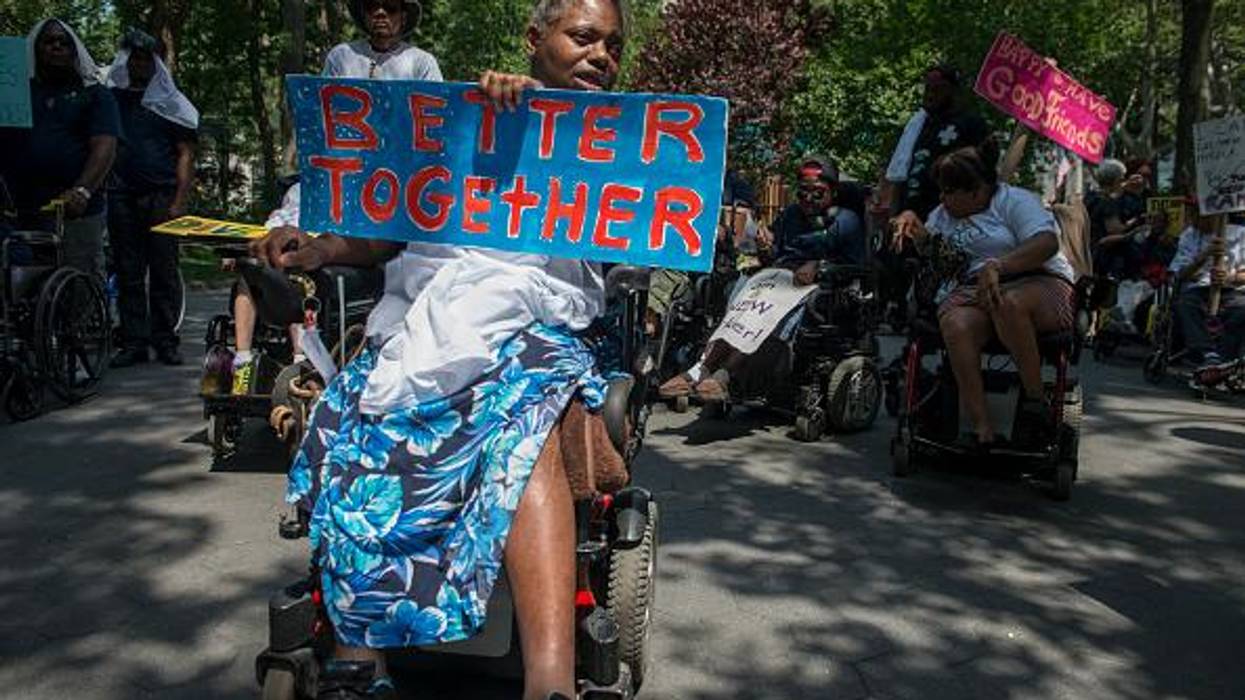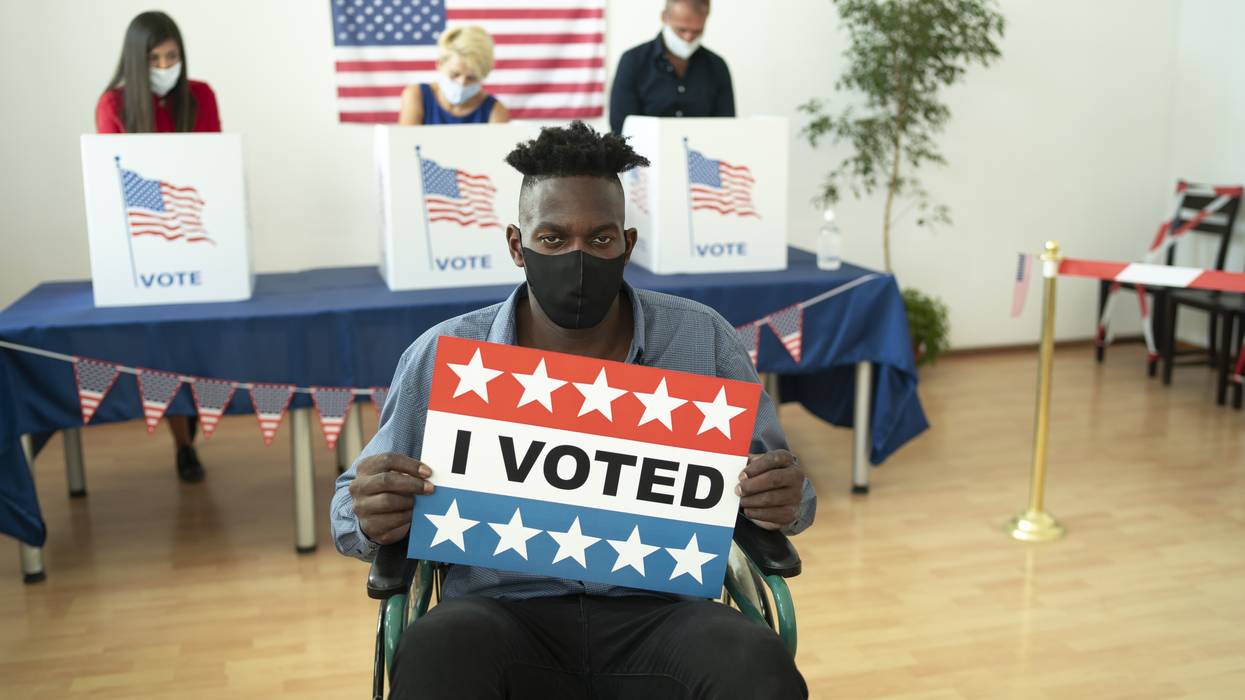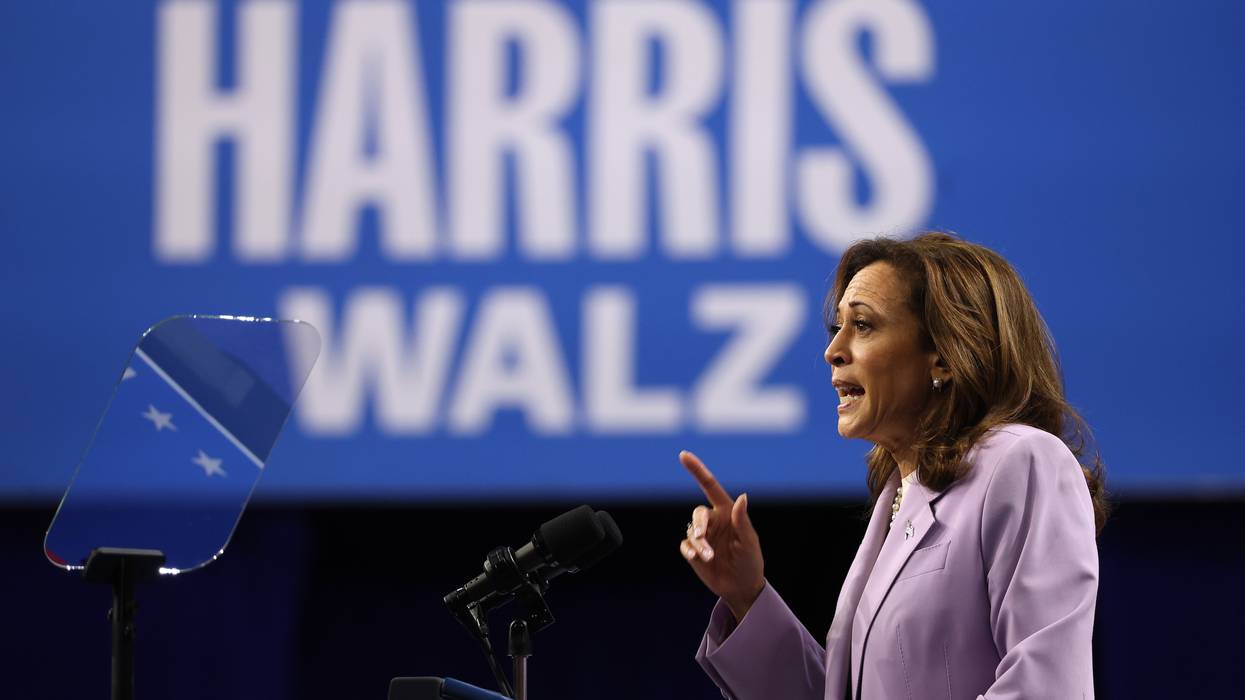It’s Long Past Time to End Subminimum Wages for Disabled Workers
Segregated, subminimum wage jobs deprive disabled people of the chance to know what we’re capable of when our needs are valued and met.
After years of advocacy from the disabled community, the Department of Labor is proposing a rule that would end the issuance of 14(c) certificates, which enable businesses to pay subminimum wages to disabled workers.
If you’re unfamiliar with Section 14(c) of the 1938 Fair Labor Standards Act, you might be shocked to learn that it is, in fact, legal to pay disabled workers below the minimum wage. Companies across the country can request 14(c) certificates that give them license to pay disabled workers far below poverty wages. It’s a practice that has been present for decades, but there is once again movement toward making 14(c) a thing of the past.
Ending this practice is long overdue, and is desperately needed to keep disabled people out of poverty. In the South, where my organization New Disabled South works, poverty is higher than anywhere else in the country. And there are more 14(c) certificates in the South than any other region in the nation. We know that disabled people live in poverty at twice the rate of nondisabled people—which means that there is simply no reason to keep disabled people in poverty by paying them poverty wages. It is unconscionable.
Calling this a “special” wage is an insult to the disability community, which deserves to thrive and live with dignity.
Proponents of 14(c) certificates have emphasized the supposed merits of these certificates, saying that they provide people with intellectual and developmental disabilities (IDD) the opportunities to work that they otherwise wouldn’t have. One argument that gets perpetuated often is that it’s better to pay folks with IDD something rather than nothing at all. This is perhaps the most disturbing justification imaginable—implying that sheltered workshops are sufficient options for people who “wouldn’t otherwise be employable.” In truth, segregated, subminimum wage jobs deprive disabled people of the chance to know what we’re capable of when our needs are valued and met. We rise to the occasion when employers, family advocates, caregivers, regulatory agencies, and legislators meet their responsibilities to us. Many more disabled people would be capable of competitive integrated employment—and more generally, would be better able to reach our highest potential—if we are first provided with fair wages, in addition to wrap-around support that allows us to improve our skills and do our jobs in an accessible environment.
Decades of research demonstrate that segregated, subminimum wage jobs generate higher costs for employers and worse outcomes for disabled people. Plus, employment rates for disabled people improve in states that end 14(c). What is truly needed is Competitive Integrated Employment (CIE), which ensures that disabled people get paid fairly and have opportunities for employment in their community, as opposed to being segregated from it. Many more of us would be capable of CIE if we were provided with the integrated opportunities afforded under Olmstead and the reasonable accommodations protected under the Americans with Disabilities Act (ADA), including those that teach and allow us to communicate via augmentative and alternative communication (AAC).
Arguments favoring the continued use of 14(c) certificates are primarily based on fear or misunderstanding of the current policy and programmatic landscape. The biggest misconception is that payments above subminimum wage will disqualify disabled employees from receiving the public benefits they require. However, two existing options for mitigating that possibility are ABLE Accounts and Medicaid “buy-in” programs.
ABLE accounts are savings accounts that allow disabled people to save money without it counting toward the asset limits associated with eligibility for SSI, Medicaid, SNAP, and other government assistance programs. Medicaid “buy-in” programs allow disabled workers to access, sometimes in exchange for a premium, the home- and community-based services that are not provided under employer-sponsored or other private health insurance plans. Forty-seven states and D.C. have Medicaid “buy-in” programs. No one should have to choose between keeping a job and keeping their healthcare, and this program makes it possible for disabled people to have both.
ABLE accounts and Medicaid “buy-in” programs must be expanded to eliminate disincentives to work. Income and asset limits associated with eligibility for government assistance programs must also be raised to align with the rising cost of living across the country, particularly for disabled people. But even in the absence of those policy changes, the finalization of DOL’s proposed 14(c) rule will still be beneficial.
This is what equity and inclusion looks like, not continuing the standard set by Section 14(c) for low quality of life, inequality, and economic suffering. Proponents of the 14(c) program refer to subminimum wages as the “Special Minimum Wage,” a stunningly offensive term aimed at diminishing the harm that paying these wages does to disabled workers. As of 2019, the majority of 14(c) employees were earning less than $3.40 an hour, or $213.76 per month, while—as I highlighted two years ago—the executive directors of many of these workplaces made five- and six-figure salaries. Calling this a “special” wage is an insult to the disability community, which deserves to thrive and live with dignity.
The Department of Labor is accepting public comment through January 17, meaning there is still time to encourage them to finalize the proposed rule and finally end the 14(c) program once and for all. To learn more about DOL’s proposed rule and how to submit comments by January 17, check out this Plain Language explainer and action alert from the Autistic Self Advocacy Network.



